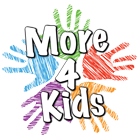Home schooling is an effective, educational alternative to attendance in a public or private school.
by Ann Bowers
Ah! The thought of home schooling has crossed your mind. Has your child had a difficult year at school? Is your child finding it hard to deal with aggressive children at school? Does your family have the opportunity to travel¸ if the children were not in school? Perhaps you’d prefer to school your children at home because of your religious beliefs or cultural values. Families make the decision to home school for many reasons and they often continue to do so because they have more freedom and because of the good effects on the children.
What is home schooling?
Home schooling is an effective, educational alternative to attendance in a public or private school. Children learn under the supervision of their parents and together they take control of their learning. Home schooling is not the same as “independent study” or “visiting teacher” programs. These programs, for children who are ill or cannot attend school for other reasons, are home education, but the parents and students have no control over the content and the students are expected to return to the public school system as soon as they are able.
Home schooling is an effective, educational alternative to attendance in a public or private school. Children learn under the supervision of their parents and together they take control of their learning. Home schooling is not the same as “independent study” or “visiting teacher” programs. These programs, for children who are ill or cannot attend school for other reasons, are home education, but the parents and students have no control over the content and the students are expected to return to the public school system as soon as they are able.
Who home schools? Who shouldn’t home school?
Parents from all kinds of backgrounds home school their children. Home school families may live in cities, rural areas, or the country. Mom may work and Dad home schools or vice versa. Sometimes both Mom and Dad teach the children. Home school families may be nuclear, blended, single parented, religious, not religious, immigrants, rich, poor, of all races, disabled, or anyone in your neighborhood!
There are only a few reasons why someone shouldn’t home school.
1. Neither parent really wants to home school, but is being put under pressure by a spouse or relative to do so.
2. The parent who will do the teaching is physically unable to teach at times because of serious illness or disability. This does not mean that an ill person or a disabled person shouldn’t ever home school; each person must evaluate his/her own situation to make sure that he/she has the stamina, ability, time, focus, and desire.
3. There are some situations in which home schooling should not be considered. These include homes in which the parent is mentally challenged, an alcoholic, or a drug user.
4. Parents who have difficulty with organization, maintaining a schedule, or are poor disciplinarians may find that the children are not studying regularly, aren’t keeping pace with public school students, or are refusing to do schoolwork. These parents should not home school.
Why do families home school?
There are many reasons why families home school. There are many benefits to home schooling, including:
There are many reasons why families home school. There are many benefits to home schooling, including:
-
Development of a strong parent and child relationship.
-
The opportunity to closely supervise the content that is taught.
-
The opportunity to include religious and moral instruction.
-
The ability to meet special needs of children, including learning styles and interests.
-
Concerns about safety at school. -
The reluctance of children to make long bus trips to and from school.
-
The flexibility of being able to set one’s own schedule, travel, and use various locations for learning.
-
The incredible amount of time the family can spend together – living, learning, loving, working, and playing.
-
The understanding of the family that develops and the commitment each member makes to the family.
How many people home school?
This is difficult to answer because not all families who home school are registered. About 2% or two million children in the United States are home schooled. There is no question but that home schooling is growing.
This is difficult to answer because not all families who home school are registered. About 2% or two million children in the United States are home schooled. There is no question but that home schooling is growing.
Home schooling, which is parental education of children in the home, occurs for many reasons and it often continues because of the increased freedom and the good effects on the children. Nearly anyone may home school and the numbers of parents who do are growing rapidly.
|
Ann Bowers has been an elementary school teacher, in kindergarten through 8th grade, for 20 years. She was a Bilingual Education Grant Project Coordinator for seven years and a school principal for seven. She has a B.A. in English, an M.A. in Education, and holds California Life Teaching Credentials and specialist credentials in Remedial Reading and Teaching English as a Second Language. She is retired and has started a second career as a freelance writer. No part of this article may be copied or reproduced in any form without the express permission of More4Kids Inc © 2006
|
Posting Search Tags: Homeschooling Education










Add Comment